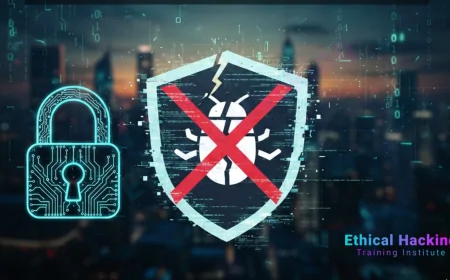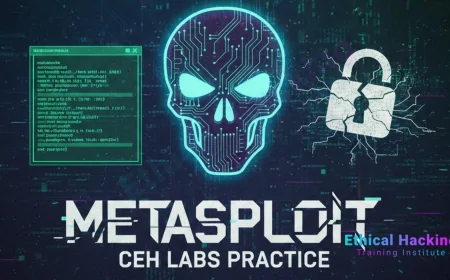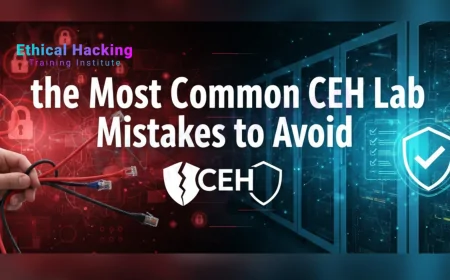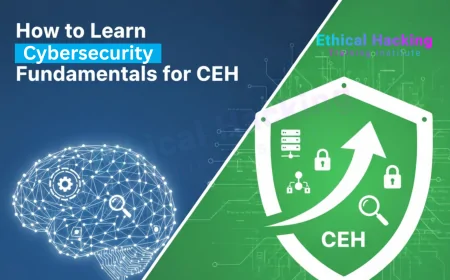Can You Get an Ethical Hacker Degree? What Are Your Options? | How to Pursue an Ethical Hacking Degree: What Are Your Choices?
Discover how to get an ethical hacker degree, explore certifications, diploma programs, and online courses to launch your cybersecurity career.
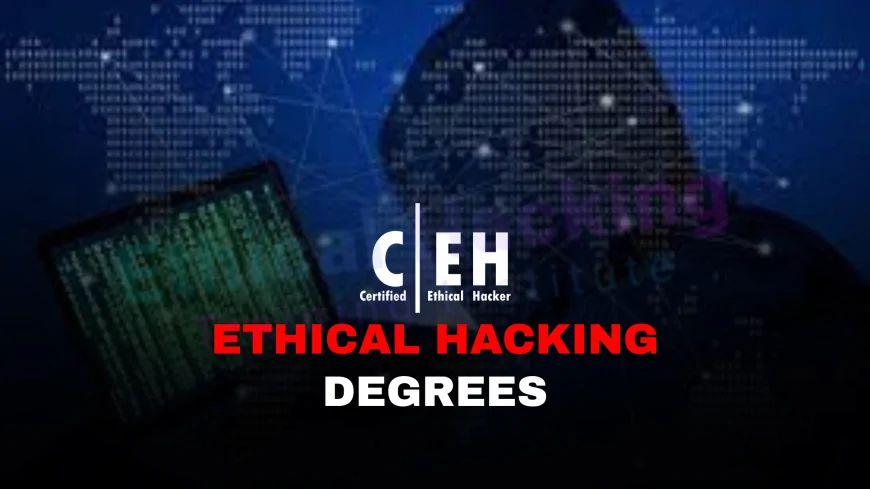
Table of Contents
- Introduction
- What is Ethical Hacking?
- Do Universities Offer Ethical Hacker Degrees?
- Types of Degrees for Ethical Hacking
- Top Institutions Offering Ethical Hacker Degrees
- Ethical Hacking Certifications vs. Degrees
- Diploma and Short-Term Course Options
- Online Degrees and Programs
- Is a Degree Mandatory for a Career in Ethical Hacking?
- Skills You Need to Become an Ethical Hacker
- Career Opportunities with a Degree or Certification
- How to Choose the Right Path for You
- FAQs
- Conclusion
Introduction
In today’s digital-first world, the need for cybersecurity professionals is growing at a record pace. Among these professionals, ethical hackers play a crucial role in defending systems from malicious attacks. But can you actually get a formal degree in ethical hacking? What are your education and training options?
This article explores the various degree programs, certifications, and alternative learning routes for those aspiring to become ethical hackers. Whether you're a student, career switcher, or tech enthusiast, this detailed guide will help you understand your options.
What is Ethical Hacking?
Ethical hacking, also known as penetration testing or white-hat hacking, involves legally breaking into systems to identify security vulnerabilities before malicious hackers can exploit them. Ethical hackers are typically hired by businesses, government agencies, and cybersecurity firms to help protect digital infrastructure.
The ethical hacker mimics the mindset of a black-hat hacker—but within legal and professional boundaries—to test system defenses. The ultimate goal is to make systems more secure by identifying and fixing loopholes before someone else finds them.
Do Universities Offer Ethical Hacker Degrees?
While there is no degree titled exactly “Ethical Hacker Degree,” many universities offer programs that provide the skills and knowledge required for ethical hacking roles. These typically fall under broader domains like:
- Bachelor’s in Cybersecurity
- Bachelor’s in Computer Science (with security electives)
- Information Security & Assurance Programs
- Master’s in Information Security or Cybersecurity
These programs often include courses in:
- Network Security
- Cryptography
- System Architecture
- Penetration Testing
- Ethical Hacking Labs
Types of Degrees for Ethical Hacking
1. Associate Degree (2 Years)
Offered by community colleges or online schools, associate degrees in cybersecurity or IT security provide foundational knowledge suitable for entry-level roles or further study.
2. Bachelor’s Degree (3-4 Years)
A Bachelor’s degree in Cybersecurity or Computer Science is one of the most common and well-accepted educational paths. It often includes ethical hacking modules.
3. Master’s Degree (1-2 Years)
For deeper specialization, Master’s programs in cybersecurity provide advanced knowledge in threat detection, malware analysis, and security architecture.
4. Integrated Programs
Some institutions offer integrated B.Tech + M.Tech in Information Security or related areas. These programs are tailored for long-term growth in cybersecurity.
Top Institutions Offering Ethical Hacker Degrees
- Stanford University (USA): MS in Cybersecurity
- MIT (USA): Computer Science and Artificial Intelligence Lab with cybersecurity research
- Carnegie Mellon University: Information Security Programs
- IIIT Hyderabad: M.Tech in CSE with specialization in Security
- Amity University (India): B.Tech in Cybersecurity
- University of Maryland: Bachelor’s in Cybersecurity
Ethical Hacking Certifications vs. Degrees
| Aspect | Degree | Certification |
|---|---|---|
| Duration | 2–4 years | 1–6 months |
| Recognition | University-accredited | Industry-standard (e.g., CEH, OSCP) |
| Cost | High | Moderate to low |
| Job-readiness | Comprehensive knowledge | Focused practical skills |
| Recommended For | Long-term academic path | Quick skill upgrades |
Diploma and Short-Term Course Options
Many institutions offer 6–12 month diploma courses in ethical hacking and cybersecurity. Some top options include:
- NIIT – Diploma in Ethical Hacking
- Aptech – Advanced Diploma in Cybersecurity
- Udemy, Coursera, and Simplilearn – Project-based ethical hacking bootcamps
Online Degrees and Programs
For working professionals and remote learners, many top universities now offer online cybersecurity degrees:
- University of London – BSc in Computer Science (with security)
- Western Governors University (WGU) – BS in Cybersecurity and Information Assurance
- EC-Council University – Bachelor’s and Master’s in Cybersecurity
Is a Degree Mandatory for a Career in Ethical Hacking?
While a degree can give you an edge, it’s not mandatory. Many successful ethical hackers build their careers with:
- Certifications (CEH, OSCP, CompTIA Security+)
- Self-taught skills and open-source contributions
- Hackathons, bug bounty programs, and real-world projects
Skills You Need to Become an Ethical Hacker
- Strong knowledge of networking (TCP/IP, firewalls)
- Linux and Windows system administration
- Programming languages (Python, Bash, C++)
- Tools like Wireshark, Metasploit, Nmap
- Cryptography and password cracking techniques
Career Opportunities with a Degree or Certification
With the right degree or certification, you can land roles such as:
- Ethical Hacker / Penetration Tester
- Cybersecurity Analyst
- Vulnerability Assessment Expert
- Network Security Engineer
- Red Team Specialist
How to Choose the Right Path for You
Here are some tips to decide:
- Student or beginner: Choose a Bachelor’s program with cybersecurity electives
- Professional switching careers: Get certified with CEH or OSCP
- Time-constrained: Consider online programs or diploma courses
FAQs
1. Is there a specific degree called "Ethical Hacking"?
No, but many universities offer degrees in Cybersecurity or Computer Science that include ethical hacking modules as part of the curriculum.
2. What degree is best for becoming an ethical hacker?
A Bachelor's degree in Cybersecurity, Computer Science, or Information Security is considered ideal for aspiring ethical hackers.
3. Can I become an ethical hacker without a degree?
Yes. While a degree helps, many professionals enter the field through certifications, self-study, and hands-on experience.
4. Which is better: CEH or a degree in cybersecurity?
They serve different purposes. A degree provides a broad foundation, while CEH (Certified Ethical Hacker) focuses on practical skills.
5. How long does it take to become an ethical hacker?
It depends. A degree takes 3–4 years, while certifications like CEH or OSCP can be earned in a few months with dedicated study.
6. Do ethical hackers get paid well?
Yes. Ethical hackers earn competitive salaries, ranging from ₹6–30 LPA in India and $70,000–$130,000 globally, depending on experience.
7. Do I need to know programming to become an ethical hacker?
Yes. Knowledge of languages like Python, Bash, and C/C++ is valuable for scripting and exploiting vulnerabilities.
8. Can I pursue ethical hacking after 12th grade?
Yes. You can enroll in a diploma or bachelor's degree program in cybersecurity or information technology after 12th.
9. Is ethical hacking legal in India?
Yes, as long as it is performed with proper authorization and consent from the system or organization.
10. Are there diploma courses in ethical hacking?
Yes. Institutes like NIIT, Aptech, and others offer 6–12 month ethical hacking diploma programs.
11. Which certifications are good for ethical hackers?
Popular certifications include CEH, OSCP, CompTIA Security+, CISSP, and eJPT (eLearnSecurity Junior Penetration Tester).
12. Can arts or commerce students become ethical hackers?
Yes, but they may need to build a strong foundation in networking, operating systems, and programming.
13. Are online degrees in ethical hacking valid?
Yes, if they are offered by accredited universities or institutions with recognized credentials.
14. What are bug bounty programs?
These are programs where companies pay ethical hackers to find and report vulnerabilities in their software or systems.
15. What is the difference between black-hat and ethical hackers?
Black-hat hackers exploit systems for malicious intent, while ethical hackers work legally to protect systems from such attacks.
16. Can I become an ethical hacker part-time?
Yes. Many professionals learn ethical hacking in their spare time through online courses and weekend training programs.
17. Is OSCP harder than CEH?
Yes. OSCP is a more hands-on and technically challenging certification compared to CEH, which is more theory-focused.
18. Are there government jobs for ethical hackers?
Yes. Ethical hackers are hired by government agencies, defense sectors, and law enforcement for cybersecurity roles.
19. What tools should an ethical hacker know?
Important tools include Nmap, Wireshark, Metasploit, Burp Suite, Nikto, and John the Ripper.
20. How do I start my career in ethical hacking?
Begin by learning networking and operating systems, then pursue certifications like CEH, and build hands-on skills through labs and projects.
Conclusion
Ethical hacking is one of the most exciting and in-demand careers in tech today. While there’s no “ethical hacker degree” per se, there are multiple academic and professional pathways—from university programs to industry certifications and hands-on courses. Whether you choose a degree, certification, or both, the key is to build strong foundational knowledge, hands-on skills, and stay updated in this ever-evolving field.
What's Your Reaction?
 Like
0
Like
0
 Dislike
0
Dislike
0
 Love
0
Love
0
 Funny
0
Funny
0
 Angry
0
Angry
0
 Sad
0
Sad
0
 Wow
0
Wow
0
